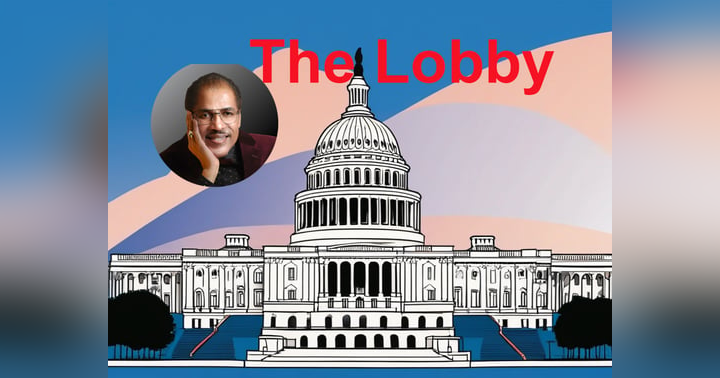United States policy towards Gaza

The United States’ policy towards Gaza has been a contentious issue for decades, with various administrations grappling with the complex political, humanitarian, and security challenges in the region. The Gaza Strip, a small strip of land along the Mediterranean coast, has been at the center of the Israeli-Palestinian conflict, with ongoing violence, political instability, and humanitarian crises exacerbating the already dire situation. The United States has historically supported Israel, its closest ally in the Middle East, which has shaped its approach towards Gaza. However, critics argue that this support has led to a one-sided policy that prioritizes Israeli security interests at the expense of Palestinian rights and well-being.
To understand the current United States policy towards Gaza, it is essential to first examine the historical context of the conflict. The Israeli-Palestinian conflict dates back to the mid-20th century, with the establishment of the state of Israel in 1948 and the subsequent displacement of hundreds of thousands of Palestinians. The Gaza Strip, originally part of the British mandate of Palestine, came under Egyptian control after the 1948 Arab-Israeli war and later fell under Israeli occupation after the 1967 Six-Day War. In 2005, Israel unilaterally withdrew from Gaza, but maintained control over its borders, airspace, and coastline, effectively maintaining a blockade on the territory.
The blockade has severely restricted the movement of people and goods in and out of Gaza, leading to a dire humanitarian crisis. According to the United Nations, over 70% of Gazans are food insecure, unemployment rates are among the highest in the world, and access to basic services such as healthcare and education is limited. The situation has been further compounded by regular outbreaks of violence, including Israeli military operations and Palestinian rocket attacks, resulting in civilian casualties on both sides. The United States has supported Israel’s right to defend itself against these attacks, but critics argue that its unequivocal backing of Israeli actions has perpetuated the cycle of violence and hindered efforts to find a lasting peaceful resolution to the conflict.
The Trump administration’s approach towards Gaza further exacerbated tensions in the region. In 2018, the administration cut funding to the United Nations Relief and Works Agency for Palestine Refugees (UNRWA), which provides assistance to over 1.3 million refugees in Gaza. The move was widely criticized by humanitarian organizations, who warned that it would worsen the already dire humanitarian situation in the territory. Additionally, the Trump administration recognized Jerusalem as the capital of Israel and moved the U.S. embassy there, sparking widespread protests in Gaza and across the Palestinian territories.
The Biden administration has taken a more nuanced approach towards Gaza, emphasizing the need for a two-state solution to the Israeli-Palestinian conflict. In a departure from the Trump administration’s policies, the Biden administration has pledged to resume humanitarian aid to the Palestinians, restore diplomatic relations with the Palestinian Authority, and reopen the U.S. consulate in Jerusalem. However, critics argue that these measures are not sufficient to address the root causes of the conflict or alleviate the suffering of Gazans.
The perceived shortcomings of the United States’ policy towards Gaza can be categorized into three main areas: humanitarian, political, and security. From a humanitarian perspective, the blockade has had devastating consequences on the civilian population in Gaza, leading to widespread poverty, malnutrition, and lack of access to basic services. Human rights organizations such as Amnesty International and Human Rights Watch have documented numerous human rights violations in Gaza, including arbitrary detention, torture, and extrajudicial killings by Israeli forces. The United States’ continued support for Israel’s blockade and military operations in Gaza has been criticized for contributing to these violations and perpetuating the cycle of violence in the region.
From a political perspective, the United States’ unwavering support for Israel has been seen as undermining its credibility as a neutral mediator in the Israeli-Palestinian conflict. The United States has vetoed numerous UN Security Council resolutions condemning Israeli actions in Gaza, leading to accusations of double standards and bias in its approach. Critics argue that this bias has emboldened Israeli authorities to continue their repressive policies in Gaza with impunity, further fueling resentment and radicalization among the Palestinian population.
From a security perspective, the United States’ close military ties with Israel have been a source of concern for many in the region. The United States provides billions of dollars in military aid to Israel each year, which has been used to finance military operations in Gaza and the West Bank. Critics argue that this military aid has enabled Israel to maintain its occupation of Palestinian territories and suppress Palestinian resistance with excessive force. The United States’ unconditional support for Israel’s security objectives in Gaza has been questioned for its failure to address the underlying political grievances and legitimate aspirations of the Palestinian people.
The ethical implications of the United States’ policy towards Gaza are also a subject of vigorous debate. Critics argue that the United States’ complicity in the humanitarian crisis in Gaza violates international humanitarian law and human rights standards. The principle of proportionality, which requires that the use of force be proportionate to the threat posed, has been repeatedly violated by Israeli military operations in Gaza, resulting in civilian casualties and widespread destruction of civilian infrastructure. Critics also argue that the principle of distinction, which requires that combatants distinguish between military targets and civilians, has been violated by both sides in the conflict, leading to the deaths of innocent civilians.
Furthermore, the United States’ unconditional support for Israel’s actions in Gaza has been criticized for undermining the principles of self-determination and sovereignty for the Palestinian people. The Palestinian right to self-determination has been recognized by numerous UN resolutions and international treaties, yet Israel’s continued occupation of Palestinian territories, including Gaza, has denied the Palestinians their right to determine their own political future. The United States’ failure to hold Israel accountable for its violations of international law and human rights standards has been seen as a betrayal of its commitment to promoting democracy and respect for human rights around the world.
In light of the perceived shortcomings and ethical implications of the United States’ policy towards Gaza, it is imperative to explore alternative solutions or approaches to address the root causes of the conflict and alleviate the suffering of the civilian population. One possible alternative is to pressure Israel to lift the blockade on Gaza and allow for the free movement of people and goods in and out of the territory. This would help alleviate the humanitarian crisis in Gaza and improve the living conditions of its residents, while also reducing tensions and promoting dialogue between Israelis and Palestinians.
Another alternative is to support international efforts to broker a comprehensive peace agreement between Israel and the Palestinians, based on a two-state solution and the recognition of the rights and aspirations of both peoples. The United States could play a constructive role in facilitating negotiations and creating a conducive environment for a just and lasting peace in the region. This could include promoting confidence-building measures, supporting economic development in Gaza, and addressing the root causes of the conflict, such as the status of Jerusalem, the right of return for Palestinian refugees, and the future borders of a Palestinian state.
In conclusion, the current United States policy towards Gaza has been criticized for its perceived shortcomings and ethical implications, including its complicity in the humanitarian crisis, political bias towards Israel, and security concerns. The United States has a moral and legal obligation to uphold international humanitarian law and human rights standards in its foreign policy, including in its approach towards Gaza. By recognizing the rights and aspirations of both Israelis and Palestinians, supporting a just and lasting peace in the region, and promoting dialogue and reconciliation between the parties, the United States can play a constructive role in addressing the root causes of the conflict and promoting peace and stability in the Middle East.



